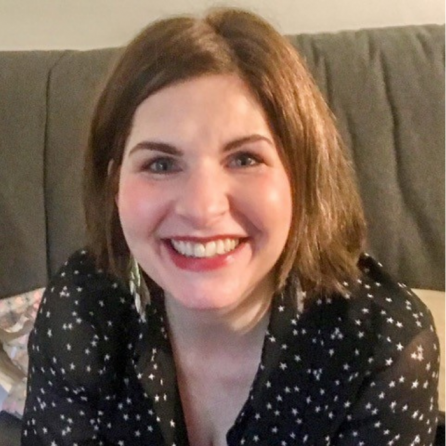
Jenny shares her experience of disclosing and talking to her friends about MS.
I was a schoolchild when I was diagnosed with MS 30 years ago and, back then, I only told my closest friends. The last thing that I wanted to do was feel different to everyone else my age or for people to pity me. I was able to hide my relapses as I would take time off school when they happened, so that helped. In regards to the friends that I did tell, they just treated me normally – I guess because, outside of the relapses, I was acting normal. I had the lifestyle of a typical teenager – basically just studying and hanging out with my friends! Did I talk about my MS? Not really – in those early days, I didn’t have much to say. What teenager wants to hear about her friend’s occasional need for self-catheterisation? I certainly didn’t want to talk about it.
Rightly or wrongly, I forgot about my MS when it didn’t affect me; a lack of relapses and symptoms for 8 years meant that it wasn’t at the forefront of my mind for a long time. Maybe the fact that I didn’t talk about it a lot made others forget that I had it too?
I couldn’t forget about it or hide from it forever though; my MS started turning Secondary Progressive when I was 33. Suddenly, I realised that I would have to be open about it, whether I was talking to an old acquaintance I’d known since school (who didn’t know I had MS) or a new ‘Mum friend’ that I’d made after having kids. I couldn’t disguise the fact that I was starting to drag my left leg or that I was completely fatigued and exhausted, despite the kids sleeping through the night.
I started using mobility aids, which of course meant that everybody, whether we were friends or not, would ask, “what have you done to yourself then?” Sometimes I would respond that I just had a dodgy leg and leave it at that but, more often, I was honest and just told them that I had MS. And you know what? It was freeing. I didn’t have to downplay my fatigue anymore or explain why my in-laws were picking the kids up from school, despite me being at home.
The thing is, by that point, I couldn’t forget that I had MS. The symptoms were too constant and they were having an effect on every aspect of my life – from parenting to work – on an everyday basis. MS was now a big part of me that I couldn’t hide from. In hindsight, I wish that I had started to be more open when my MS was still largely ‘invisible’, instead of struggling.
Do I talk about it a lot now with friends? Not a great deal. Not because my friends aren’t supportive, because they most definitely are. But I have also met an amazing online community of people with MS who ‘get it’. The time that I spend blogging helps me to get my thoughts and feelings out and I have ‘met’ individuals on Instagram, Facebook, and Twitter who are just like me – using diet, exercise, and mindfulness to stay as healthy as they can be with MS.
The older I get and the longer that I live with MS, the more I realise that most people are dealing with issues that others don’t know about. The majority of people have empathy and want to help others if they can; I know that I do. When it comes to chatting to friends about my MS or asking for support, I’ve found that the quote often attributed to Dr Seuss stands:
“Those who mind don’t matter and those who matter don’t mind.”
Jenny Clarkson
Diagnosed 1994
At Overcoming MS, we are collecting different stories about the MS conversations that people have. Everyone is different. What’s right for one person may not be right for you.
To let us know that you might be interested in sharing your story, email us at [email protected]